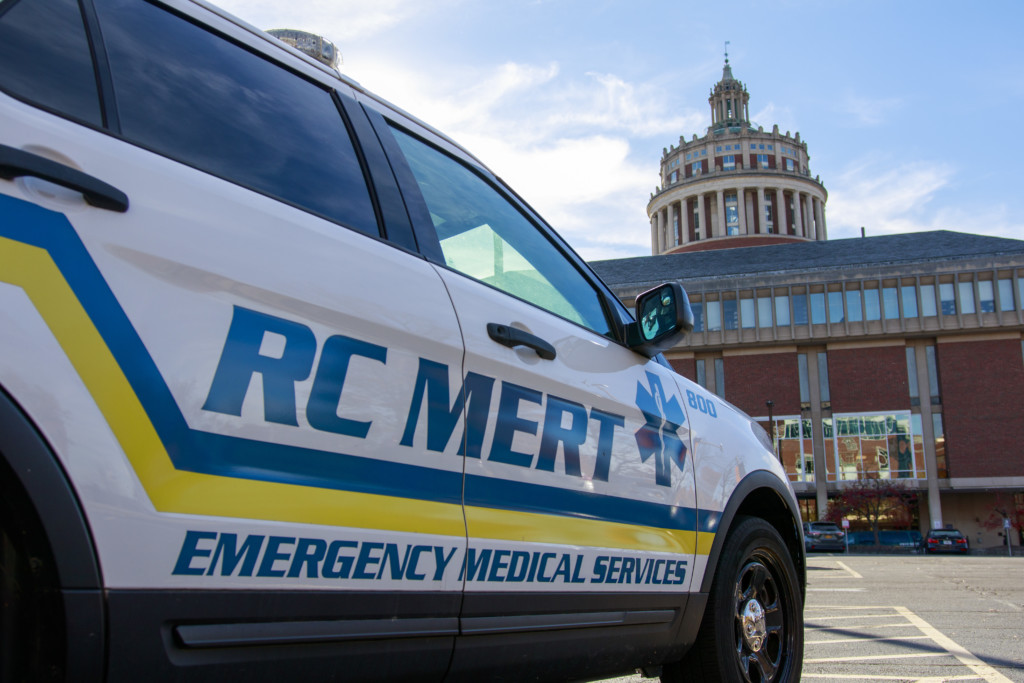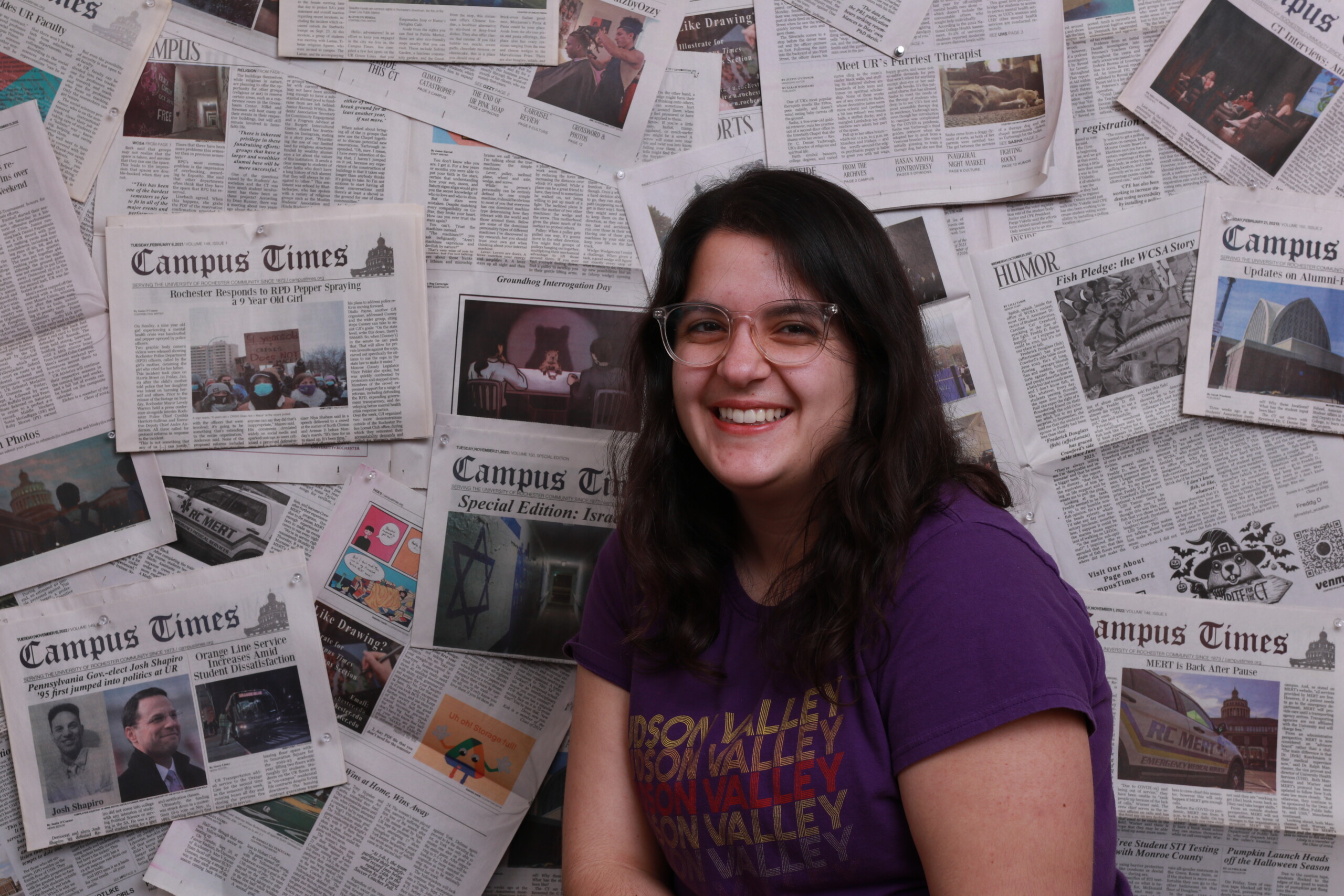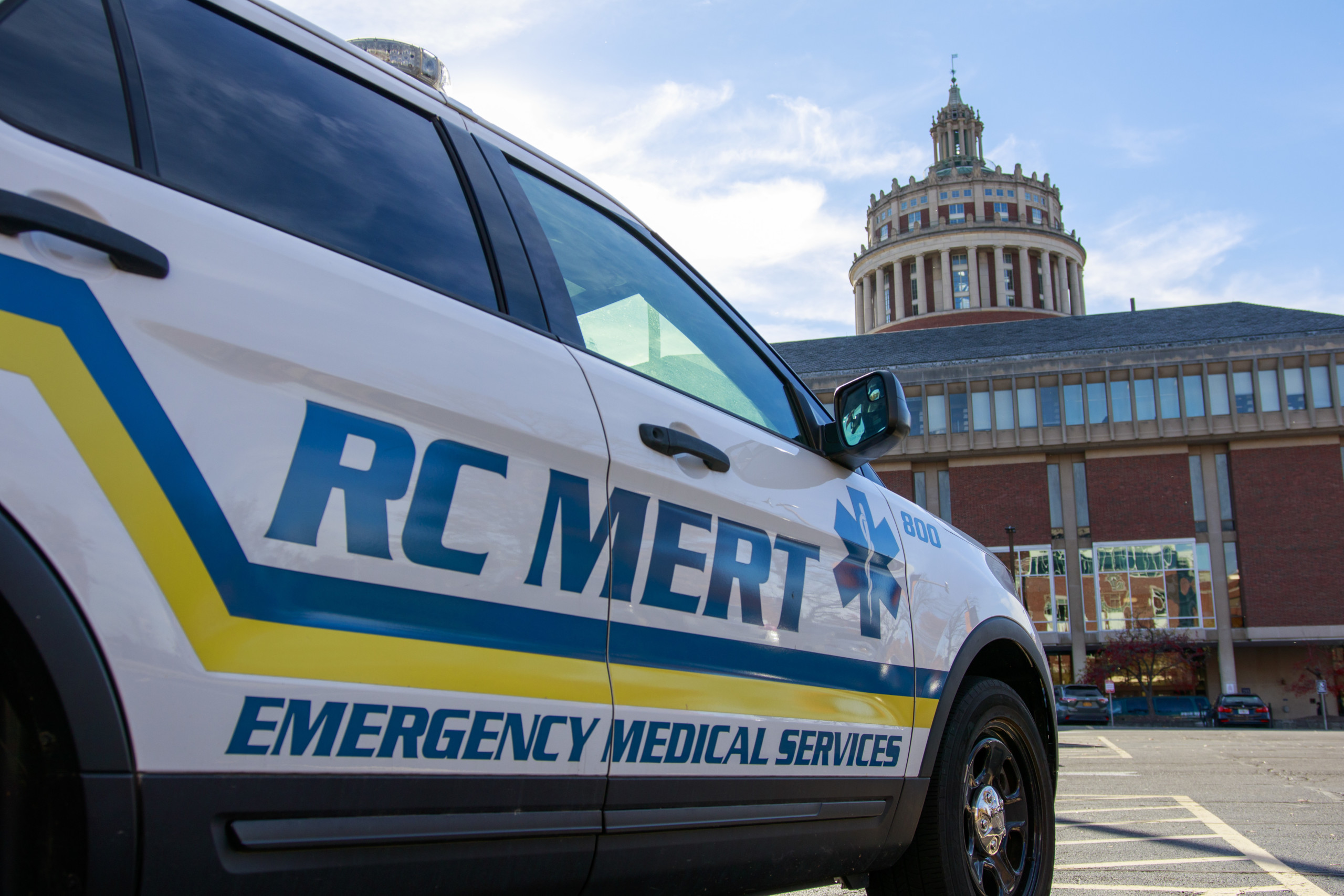After over a year on pause, the Medical Emergency Response Team (MERT) is back.
MERT is a student-led non-transporting Emergency Medical Services agency that has been at the University since 1972. Just before the fall 2021 semester kicked off, MERT announced on Instagram it would be on “pause” due to revisions of “the organization’s framework and guidelines.” Starting this month, MERT is returning with limited hours of service.
MERT will run for “about two nights a week” from 8 p.m. to 12 a.m., said senior Tori Warner, who is MERT’s assistant director of operations. Warner added that the main reason for the limited hours is that the agency currently has only one crew chief.
“Due to COVID[-19] and being out of service,” they have been unable to “rank people up because of the lack of calls,” Warner said. The crew chief serves as the senior official on calls and has the final say on any decisions that need to be made in the field. Warner said there is hope that they may be able to level up some more members to crew chief this semester, however this will only happen if MERT gets enough calls.
Before the COVID-19 pandemic, MERT ran from 8 p.m. to 8 a.m. daily. On top of having only one crew chief, MERT does not currently have a bunk room where they can station themselves while on call overnight. Warner said they are “working to get [the] bunk room back so [they can] take longer shifts.”
From an outside student perspective, MERT will not look different in terms of changes to the organization’s structure. MERT can still be contacted by calling the Department of Public Safety, who will dispatch MERT to the caller’s location on campus. And, as stated on MERT’s website, “all services provided by MERT are free. However, if a patient needs to go to the emergency department, MERT will provide care until a transporting agency arrives. Transporting agencies are not affiliated with the University and will charge fees.”
From an administrative perspective, MERT is now considered an “advisory board” rather than a club. “The main difference is that Dr. [Erik] Rueckmann is their medical supervisor now,” said Dr. Ralph Manchester, the vice provost and director of University Health Services (UHS). Both Manchester and Warner said MERT’s protocol has been updated to follow New York state law more closely. “But otherwise, they continue to be sponsored by the Dean of Students Office, Public Safety, and UHS,” Manchester continued.
Looking ahead, both Manchester and Warner expressed hope for MERT’s future and the agency being able to return to full service.



